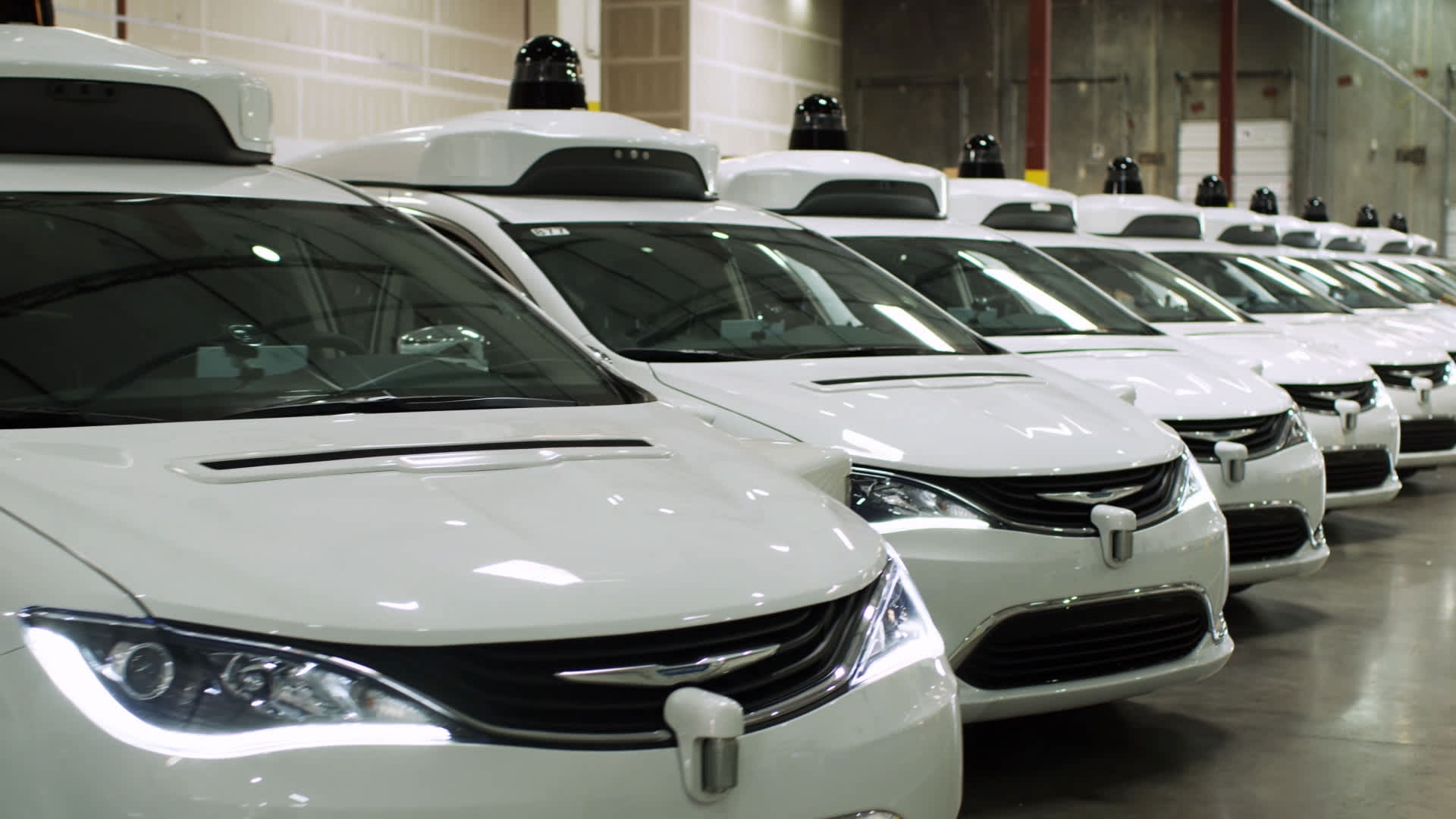Alphabet’s Waymo and GM’s Cruise get California DMV approval to run commercial autonomous car services

The California Department of Motor Vehicles approved autonomous vehicle deployment permits for GM-backed Cruise and Alphabet’s Waymo on Thursday. It allows the companies to charge a fee and receive compensation for autonomous services offered to the public, such as ride-hailing, in certain areas.
The companies still need approval from the California Public Utilities Commission, according to the California DMV, but it means the companies are one step closer to providing services to the general public outside of a testing program.
Both companies have been testing fleets of autonomous vehicles in California with permits that allow for free driverless rides to passengers in test vehicles.
Under the new authorization, Cruise vehicles can operate on public roads in designated parts of San Francisco between 10 p.m. and 6 a.m., including in light rain or light fog, but cannot exceed 30 miles per hour, the department said. Waymo can operate its fleet in parts of San Francisco and San Mateo counties at or below 65 mph, including in the rain or light fog.
Commercializing autonomous vehicles has been far more challenging than many predicted even a few years ago, but Waymo and Cruise are considered to be two of the frontrunners.
In May, both Waymo and Cruise applied for permits to begin charging for rides and delivery. Cruise applied to not have a safety driver present, while Waymo applied to have a safety driver, Reuters reported.
In June, Cruise earned a permit enabling it to offer driverless rides to passengers in test vehicles in California. Waymo opened self-driving car testing to some San Francisco residents through a program dubbed “Trusted Tester” last month.
Since acquiring Cruise in 2016, GM has brought on investors such as Honda Motor, SoftBank Vision Fund, and, more recently, Walmart and Microsoft.
“Today’s approval from the California DMV makes Cruise the first autonomous ride-hail company to receive a driverless deployment permit in the state. It brings us one step closer to achieving our mission to make transportation safer, better, and more affordable in cities with our fleet of all-electric, self-driving and shared vehicles,” Rob Grant, Cruise senior vice president of government affairs and social impact, said in an emailed statement to CNBC.
In December 2020, Nuro became the first autonomous vehicle developer to receive a permit to run commercial deliveries with retail partners.
– Lora Kolodny contributed to this report